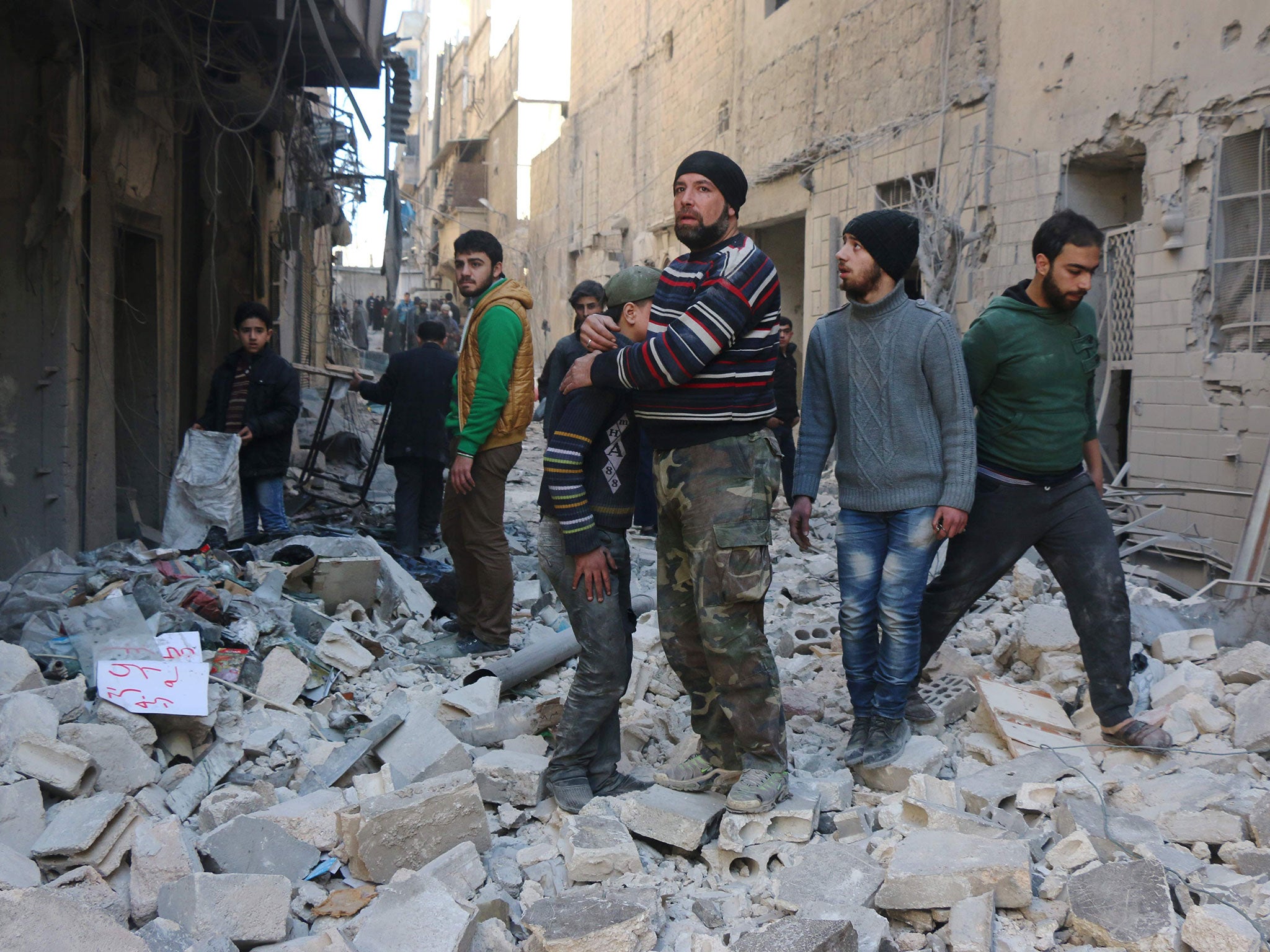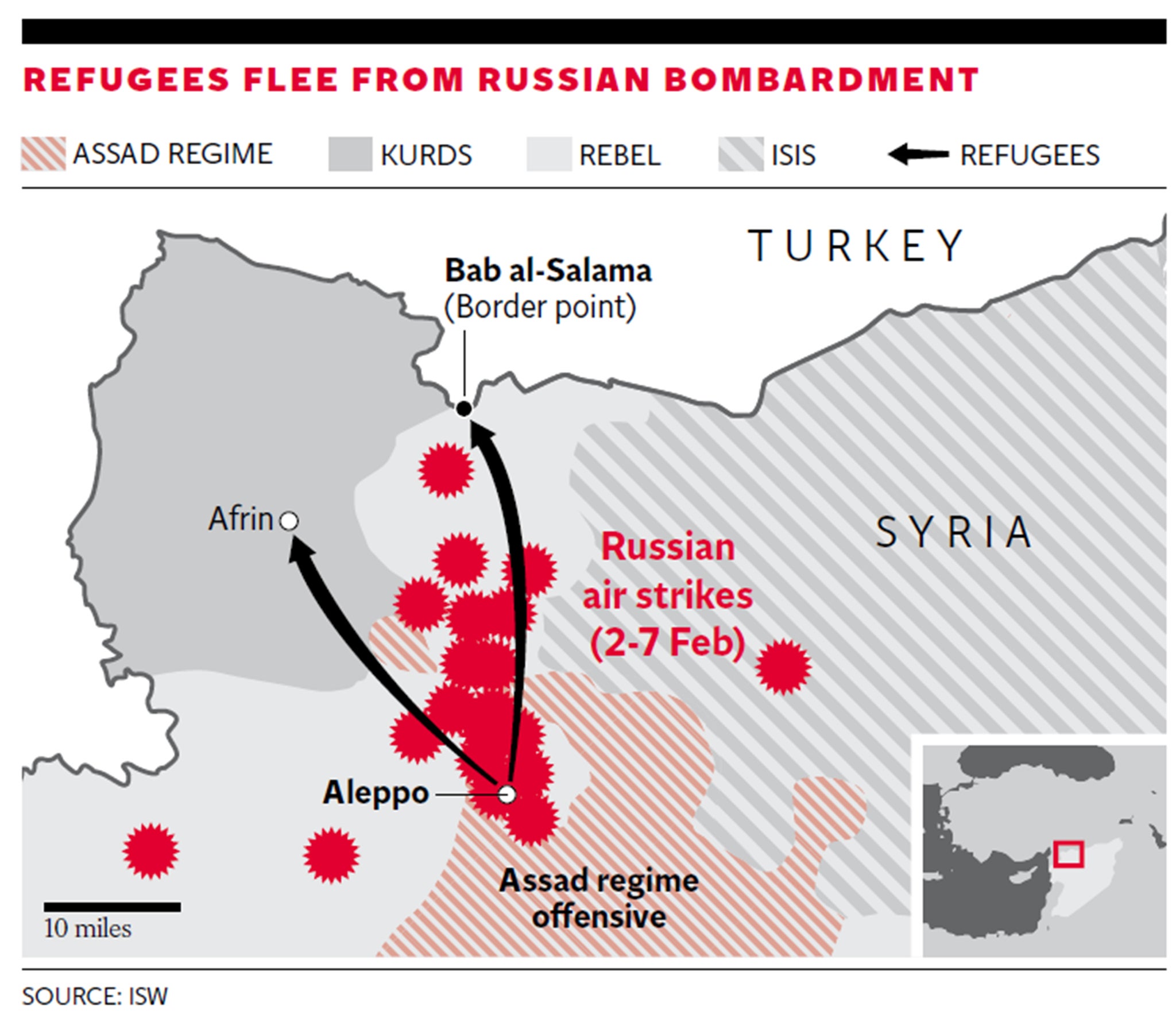Russia and US trade accusations over bombing hospitals and MSF facility in Syria
Washington and Moscow blamed each other for air strikes that hit hospitals in Aleppo, while the US denied killing three people at an MSF hospital in Tafas

The US and Russia are trading accusations over the bombing of hospitals in rebel-held areas of Syria as diplomatic efforts to secure a ceasefire falter.
A Pentagon spokesperson accused Russia and Syrian government forces of destroying two major hospitals in the divided city of Aleppo on Wednesday, without specifying when the air strikes took place.
But Igor Konashenkov, from Russia’s defence ministry hit back by claiming Moscow tracked two US Air Force A-10 jets bombing Aleppo on the day.
American officials denied hitting a Doctors Without Borders (MSF) hospital in the southern town of Tafas in strikes that killed three people on Friday.

The Independent asked the Russian Embassy and defence ministry whether its forces were involved but did not receive a reply.
A spokesperson for MSF said its Tafas field hospital, lying just miles from the Jordanian border in a region controlled by anti-government rebels, was targeted on Friday night.
Three people were killed and six wounded, including a nurse, while the blasts caused significant damage to the building and put its desperately-needed ambulance service out of action.
“In fear for their lives, more than 20,000 people from Tafas town fled to the surrounding countryside,” a spokesperson for MSF said.
“The hospital is the latest medical facility to be hit in a series of airstrikes in southern Syria, which have been escalating over the past two months.”
A member of staff said she had been on the way to work to help people injured in other air strikes when the hospital was hit.
“It all happened very quickly. I saw what looked like an explosion and then a flash of light, and then I lost consciousness for five minutes,” she recalled.
“My colleagues saw me lying on the ground, bleeding, and rushed me inside. I was injured in both my arm and leg by shrapnel.”
MSF, an international humanitarian organisation that operates in conflict zones around the world, has previously seen its facilities bombed allegedly by Saudi Arabia in Yemen and the US in Afghanistan.
Its health workers have warned that “indiscriminate bombing” in both Yemen and Syria’s civil wars are killing civilians and increasingly hitting health facilities, preventing people from accessing desperately needed medical care.

“Hospitals and clinics are no longer places where patients can recover in safety,” a spokesperson said.
“MSF renews its calls for the protection of civilian life and the respect of health facilities by all parties to the conflict…the repeated attacks on medical facilities in the ongoing conflict constitute a flagrant violation of international laws.”
Bryant Davis, a US Air Force captain, told The Independent the international coalition including Britain and France had conducted no strikes around Tafas.
“We take great care - from analysis of available intelligence to selection of the appropriate weapon to meet mission requirements - to minimise the risk of collateral damage, particularly any potential harm to non-combatants,” he added.
An official from United States Central Command said Coalition air strikes on 5 February were near Ayn Isa, in the north-eastern Raqqa governate, and hit Isis units, vehicles and buildings.
Recorded air strikes in the country show those by the US-led coalition concentrating on Isis held territory around the so-called Islamic State’s strongholds including Raqqa and Palmyra, while Russian strikes have largely hit areas controlled by “moderate” anti-government rebels.
Vladimir Putin has repeatedly insisted his intervention in Syria is targeting “terrorism” but Russian officials have confirmed they share intelligence with Bashar al-Assad’s forces and, after arriving at his intention, are most likely bombing groups singled out by the Syrian regime.
John Kerry, the US Secretary of State, was meeting with Russian Foreign Minister Sergey Lavrov today to try and reconcile deep differences over a proposed ceasefire.
Russia wants it to start on 1 March but US believes that will only serve to give give Moscow and the Syrian government three weeks to crush moderate rebel groups and wants an immediate truce.
The conflict has killed more than 250,000 people, driven Europe's biggest refugee crisis since World War II and allowed the Isis to carve out its own territory across parts of Syria and neighbouring Iraq.
Additional reporting by AP
Join our commenting forum
Join thought-provoking conversations, follow other Independent readers and see their replies
Comments
Bookmark popover
Removed from bookmarks